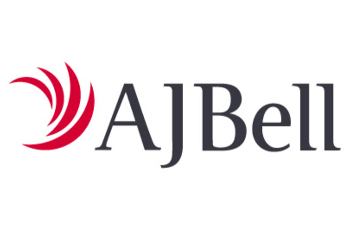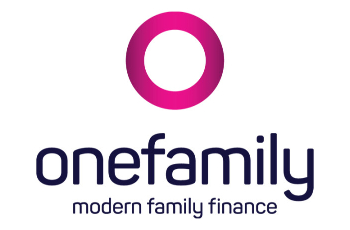Natwest Junior ISA
Compare Junior Stocks & Shares ISAs From £10 pm!
Investment ISAs put your capital at risk & you may get back less than you originally invested
- Invest From: £25 pm
- Investment Options: AJ Bell offer a wide range of investments including shares, funds, investment trusts and ETFs (exchange traded funds)
Good to know: Which? Recommended Investment Provider. Invest from £25 pm or invest a lump sum up to £9,000 in the current tax year. AJ Bell offer a wide range of investment options. For a “no hassle” option, you can choose from one of 8 funds and AJ Bell Investments will do the rest. AJ Bell offer a AJ Bell Responsible Screened Growth fund’ focused on companies taking their commitment to the environment and society seriously. Capital at risk.
Show More- Invest From: £20 pm
- Investment Options: A choice of 9 funds, including a Unitised With-Profits fund that comes with a guaranteed minimum payout
Good to know: Take your pick from 9 funds with different levels of risk and reward to create your very own investment strategy for your child. Includes a Unitised With-Profits fund that comes with a guaranteed minimum payout when the child turns 18, provided no switches or withdrawals are made. Welcome Gift: After you start investing in a My Select (Junior ISA) Scottish Friendly will pay £50 into the Junior ISA for your child. Winner of Best Junior ISA Provider 2024 for the 6th year running at the Investment Life and Pensions Moneyfacts Awards. Capital at Risk
Show More- Invest From: From £10 a month or £100 lump sum
- Investment Options: Choice of two funds: Family Balanced International Fund for more cautious long-term investors, or Family Charities Ethical Trust Fund for more adventurous long-term investors
Good to know: Invest up to £9,000 per year (current tax year limit). Also available for zero fee Junior ISA transfer held elsewhere, or child trust fund transfer. Simple choice of two funds: one for more cautious investors and one for those who are comfortable taking more risk. Manage your junior ISA 24/7 with their simple online account. OneFamily is an award-winning investment provider with over 45 years’ experience in helping families make the most of their money. OneFamily is owned by members for members, which means they don’t have shareholders to pay – so they can reinvest profits for good. To open a One Family JISA, the child must be under the age of 16 and funds cannot be withdrawn until the child turns 18. Annual Management Charge of 1.5%. OneFamily’s Junior ISA is a stocks and shares junior ISA. That means the money that you pay in goes into a fund that’s invested in the stock market. This gives your money good potential to outgrow interest rates, but there is a risk that its value could go down, which would mean your child getting back less than has been paid in. Capital at risk.
Show More- Invest From: From £1
- Investment Options: Choose from one of five investment styles based on risk, and a team of experts build your child’s Junior ISA, choosing which investments to buy and managing them on your behalf
Good to know: Junior ISA built and managed for you matched to your level of risk. Invest up to £9,000 in the current tax year. No minimum investment, invest from just £1. Raise, lower, or stop and restart your payments any time you like. Available for children under 18. The value of investments and any income can fall, so the Junior ISA could return less than you invest. Returns on investment funds are not guaranteed. Capital at Risk
- Invest From: £25 pm
- Investment Options: Choose from more than 40,000 UK and global investment options for your child's ISA
Good to know: ii offer a flat fee service which over time could save you money compared to platform providers who charge on the value of investments held. ii offer ready made funds including their ethical funds which allows you to invest in line with your principles covering environmental, social and governance factors. Capital at Risk
- Invest From: £10 pm
- Investment Options: Is an insurance based Junior ISA which invests in stocks and shares via a With-Profits pooled fund
Good to know: Your child’s money will be invested through a fund manager & will be invested primarily in stocks and shares, with the aim of achieving higher growth over the long-term than might be available through a cash-based Junior ISA. Open a Junior ISA for your child and get rewarded too. . Capital at risk. Please note: As with all investing, your capital is at risk you may get back less than you have put in. The value of the ISA will depend on the performance of the investments and any bonuses cannot be guaranteed. Additionally, if investment conditions are poor, we may apply a Market Value Reduction (MVR)
Show More- Invest From: £25 pm
- Investment Options: Invest in over 3,000 funds, UK and overseas shares, investment trusts and ETFs
Good to know: With an HL Junior Stocks and Shares ISA, you can choose investments for your child including UK and overseas shares, Investment trusts, bonds and exchange-traded funds (ETFs). HL have over 1 million clients who trust them for their investments. Capital at risk
- Invest From: £20 pm
- Investment Options: Choose either a ready made portfolio, or DIY with a choice of different funds
Good to know: Choice of ‘Ready-made’, an easy start option of investing in a single fund. These ready-made options could be an ideal choice to begin investing for your child. Alternatively choose from a selection of 9 funds to choose from, International Ethical Fund, so you can tailor your child’s investment, whether that is investing in just one, a mixture of all 9 or somewhere in between. Winner of Best Junior ISA Provider 2024 for the 6th year running at the Investment Life and Pensions Moneyfacts Awards. Capital at Risk. *Into the Junior ISA for your child.
Show More- Invest From: £10
- Investment Options: Allocate your savings between a cash money market fund / shares fund from L&G and Fidelity
Good to know: Rated the Best Junior ISA two years in a row at the Good Money Guide awards. Beanstalk app is free to download and use. The only charge is an annual fee of 0.5% on the value of any investments, one of the lowest around. Rated excellent on Trustpilot. Capital at Risk
Natwest Junior ISA
A Junior Stocks and Shares ISA is a way of investing for your children in a tax-efficient fund, where you can invest up to £9,000 for the 2022/23 tax year. The funds in the account are in the name of your child and belong to your child but they won’t be able to withdraw any funds until they reach the age of 18. When they reach 18 years of age, the Junior Stocks and Shares ISA will convert to an adult ISA, with the child being the owner. At this point, they will be able t do whatever they like with the money.
The Natwest Junior ISA is open to children under the age of 16. However, if your child already holds a Child Trust Fund, they can’t also open a Junior ISA, but the Child Trust Fund can be transferred to a Junior ISA by following the standard transfer procedure.
Natwest Junior ISA Features
It’s important to note that Junior ISA investments are linked to shares so the value of the account could fall as well as rise, and your child may get back less than has been invested.
However, Junior Stocks and Shares ISAs are tax efficient and there is no capital gains tax and no UK income tax to pay on the income on investments within a Junior ISA and it is possible to make gain higher returns than with a standard Cash ISA.
There are two ways to setup a Junior Stocks and Shares ISA with NatWest:
- Set up a direct debit for a minimum £20 per month
- Invest a lump sum of £250
Why Invest in a Junior ISA?
- The potential for higher returns. The NatWest Junior ISA invests in stocks and shares and so offers the potential for better returns than a Junior Cash ISA over the long term. Unlike a Junior Cash ISA, the NatWest Junior ISA can go down in value as well as up. The growth or income it generates each year can also fluctuate, unlike Junior Cash ISAs which receive a set rate of interest.
- Charges – There are no upfront charges, and the ongoing charge is capped at 1.5 % per year
- Top up the investment – you can save regularly with a Direct Debit or, you and your friends or relatives can make additional investments from as little as £1 a time, up to a limit of £9,000 for the 2022/23 tax year. This creates an easy way for a family to save for a child’s future.
Frequently Asked Questions
Are Junior Stocks and Shares ISAs safe?
Junior Stocks and Shares ISAs are regulated by the Financial Condict Authority (FCA) and covered by the Financial Services Compensation Scheme (FSCS).
You are not protected from losses in the value of your investments, but you are covered if your Stocks and Shares JISA provider goes into liquidation.
Can you lose money in a Junior ISA?
If you invest in a Junior Cash ISA, your money cannot go down. However, if you open a Junior Stocks and Shares ISA then the investments you buy could fall in value as well as rise.
Can I withdraw from a Junior Stocks and Shares ISA?
No withdrawals are allowed until your child is 18. They can then make withdrawals at their own discretion.
How do I add money to a Junior Stocks and Shares ISA?
You can top up a Junior Shares ISA online, via your mobile app, over the phone, or by post with a cheque.
You can add money with a lump sum or regular direct debit.
Who can add money to an Ethical Junior ISA?
Anybody can add money to your child’s JISA; however, the accounts must be set up and managed by a parent or legal guardian.
To contribute to someone else’s JISA, you will just need the account reference number and some of the child’s personal information.








